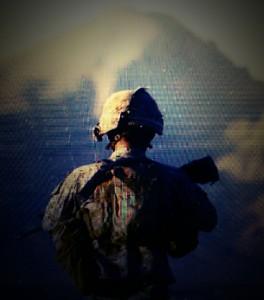President Obama has made one thing abundantly clear throughout his tenure in our nation’s highest office: Afghanistan will be done by 2014. Well, 2014 is now less than one year away, and the President is not shying away from his objective. Social media posts have gone out which announce the President’s goal and carry the message “One year from now we will be out of Afghanistan.” Just check the President’s Facebook page for more inspiring images and quotes.

Turning our backs on them
While that may give the American soldiers, their families, and the rest of our nation a nice fuzzy feeling that after more than a decade of war America will finally be free of major conflict, Afghanistan is little better than it was in 2001 when America invaded. The Taliban never went away fully, and most realistic scenarios involve engaging with the Taliban and bringing them in on a governmental level once America leaves. Which means that America pummeled a “terrorist” group for almost 13 years, spent countless lives and dollars, and in the end, that group still has a say in the government, women are second class citizens, and not even the closest American allies can be trusted.
Are there a few new schools? Sure. Are there areas that are much safer than they were before? Of course. But does Afghanistan have a culture that demands western-style democracy over central asian style tyranny? Do the people of Afghanistan want Karzai or a different warlord? How quickly will Afghanistan revert back to what it has always been: a tribal territory with different factions that has ignited at various points of friction essentially continuously since the Mongolian empire?
What the war failed to do was create enough value and security in Afghanistan for the quality of life to measurably improve. War by definition destroys, and there is no structure in place to rebuild the rumble like Germany after World War II. Afghan businesses are not very international, so they rely on domestic demand, many on a hyper-local level. Because conditions have not improved, business has suffered dramatically, almost to the point of no repair.
ROOM FOR HOPE?
The only bright spot in this sea of black holes is mining. The surface of Afghanistan might be rocky, arid, and not suited for much agriculture, but underneath the barren rocks is a treasure trove of minerals. Some experts have estimated the value of various elements to be in the neighborhood of $1 trillion. Being able to tap this resource and funnel the profits to governmental programs like social assistance and education would vastly accelerate the pace of change and development. And since the value of minerals and raw metals — particularly for electronics — is only increasing as supply in other countries wanes, a strong mining strategy should pay off heavily in the long term.
Yet historically, mining is one of the most corrupt industries. Extracting minerals is very capital-intensive, dangerous, and slow. In a place like Afghanistan, where opportunity is rarely presented, the chance to siphon off money would be too tempting for some, to the point where western governments (that should in theory bankroll these projects) might withdraw their support. A lack of infrastructure to deliver materials from mines to ports, security threats from rogue soldiers and extortionists, and zero immediate positive social impact are the main reasons why this hasn’t happened already. It’s not going to get better anytime soon, but the alternative to not creating a plan is worse.
In the absence of a strong national conviction to adopt a western-style culture of equality, any progress is going to be difficult to come by. If there was a sustainable solution, it would’ve been found years ago. Now the best that the US can do is throw in the towel and leave some security experts for an indefinite period of time to try and consolidate the central government’s reach by keeping malicious forces at bay, at least for the near term. It sounds horrible, because unfortunately, it is.
